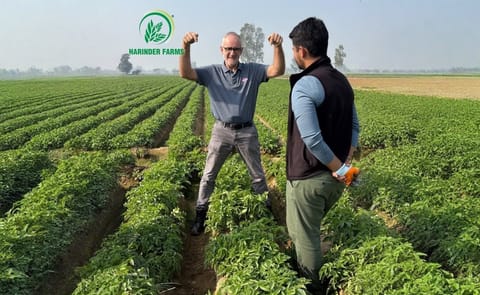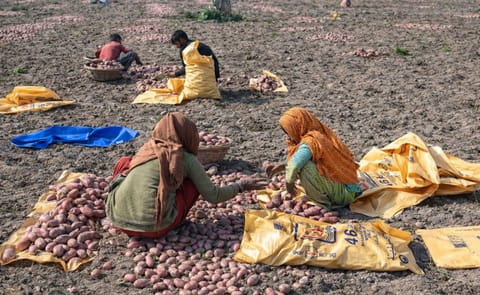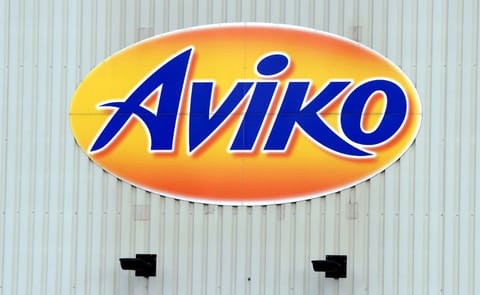Application of CIPC in a potato storage is typically done by 'fogging', circulating a very fine mist of the sprout inhibitor through the potato pile (Courtesy: Igeba)
Not enough support for European ban on potato sprout inhibitor Chlorpropham (CIPC)

Last Friday, the European Standing Committee on Plants, Animals, Food and Feed, mostly referred to as ScoPAFF voted an a proposal to ban Chlorpropham (or CIPC), widely used in the potato industry as sprout inhibitor during potato storage.
The European Commission wants to ban the sprout inhibitor that is formally regulated as a pesticide. However, in the ScoPAFF were not enough votes to approve the ban.
Of the 28 European member states, 16 countries voted in favour of a ban. However, in order for the ban to be approved, thee countries that vote in favour also must represent 65% of the European population. This was not the case. Belgium voted in favour of a ban, the Netherlands withheld its vote.
This means that for now the potato industry can continue its use of CIPC. However, this is not expected to last.
Romain Cools, general secretary of Belgapom:
“This does not mean that CIPC will not be banned.”
“The European Commission will come with a new proposal to ban Chlorpropham.”
“The situation is fairly complex, especially since CIPC is not only used as a sprout inhibitor in potato storage, but also as a herbicide in the cultivation of onions.”
“The commission now proposes to ban Chlorpropham outright.”
Chlorpropham / CIPC
Sprout suppression is a key part of potato storage, and although temperature can sometimes be used, sprouting must often be controlled by application of post-harvest treatments, such as chlorpropham, or CIPC - long established as the major global sprout suppressant.
Chlorpropham (or CIPC) is isopropyl-N-(3-chlorophenyl) carbamate, and is widely used as a sprout suppressing agrochemical applied to stored potatoes.
Commercial names include Bud Nip, Taterpex, Preventol, Elbanil, Metoxon, Nexoval, Stickman Pistols, Preweed, Furloe, Stopgerme-S, Sprout Nip, Mirvale, Bygran, ChlorIPC, CHLOROPROPHAM, Spud-Nic, Spud-Nie, Chloro-IFK, Chloro-IPC, Keim-stop and Triherbicide CIPC. It works by interfering with cell division to inhibit sprout development.
Treatment of potato stores involves, in most cases, application of CIPC as a hot fog which is introduced into the storage building under pressure using specialist thermal fogging equipment. Best practice requires use of the store ventilation system to help to distribute this fog evenly throughout the crop to optimise the suppressant’s activity and to minimise residues.
Source: AHDB / Wikipedia
But this is expected to cause major issues in the sector, according to Romain Cools:
“Potato lots that contain CIPC will have to be taken of the market if there is no regulation. This is something that is still under negotiation.”Furthermore, in some stores, alternative sprout inhibitors can not be used because of unsuitable isolation or ventilation.
“An extra problem is that chlorproham is present in the construction material of potato storages. Even after industrial cleaning, CIPC persists in the building, and the Maximum Residue Limit (MRL) is 0,01 ppm.”
“Even years later, CIPC can migrate from the building materials to the potatoes stored in that building. And should CIPC be found in a sample, all potatoes in the store would have to be destroyed.”
Romain Cools:
“It requires significant investments to adjust these stores.”
“Either way, if CIPC is banned, costs associated with sprout inhibition will increase significantly.”
“This is especially an issue since CIPC will still be allowed in the United States and Canada, our main competitors on the global market.”










